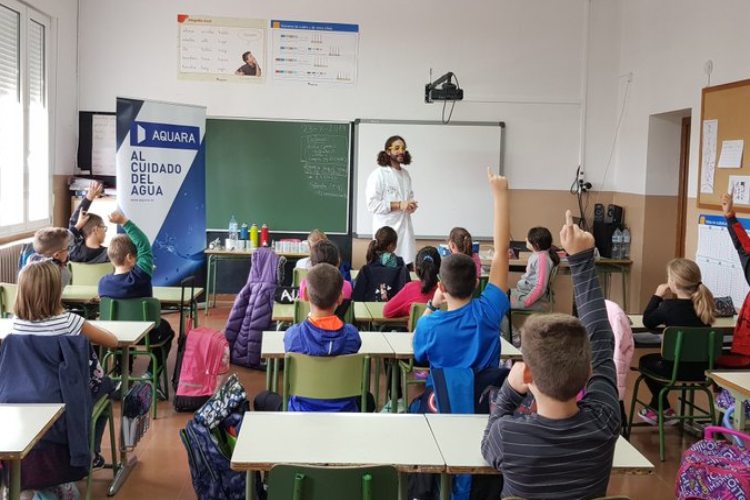Aquara celebrates World Environmental Education Day by contributing to SDG 12 “Responsible Production and Consumption” with Aqualogía
Nearly 500 Aragonese children and more than 20 sessions held is the balance with which Aqualogía, the Aquara environmental education program, closed 2019

On January 26, World Environmental Education Day is celebrated, a date that reminds us of the importance of becoming aware and raising awareness about environmental care, efficient water management and environmental education. As a socially and environmentally responsible company in Alcañiz and in all the municipalities of the Autonomous Community in which it is present, Aquara will launch one more year programs such as Aqualogía, an environmental education project aimed at primary school students in which the Integral and Urban Water Cycle, as well as to care for and respect our environment.
Aqualogía meets the objectives of Environmental Education, as it provides students with knowledge about the environment, as well as skills, ability to evaluate and participate with respect to the environmental problems of their environment. In addition, it offers them the necessary tools to become aware and have a concrete attitude towards the surrounding environment through environmental values.
In this sense, Aquara has been betting on the dissemination and awareness of children in the care of water and respect for the environment through the Aqualogía educational program. This course the company has trained almost 500 young Aragonese in the 25 sessions held, taking special importance in the months of March and October in the educational centers of Alcañiz and the CRA Regallo. In addition, Aquara has conducted Aqualogy workshops in other parts of Aragonese geography such as Calatayud, Alfajarín, Cadrete or Villamayor.
To contribute to the dissemination of the water culture Aquara also offers visits and open days throughout the year to facilities aimed at audiences of all ages, so that all interested parties can learn first-hand the processes through which it passes the water from when it is collected until it reaches their homes.